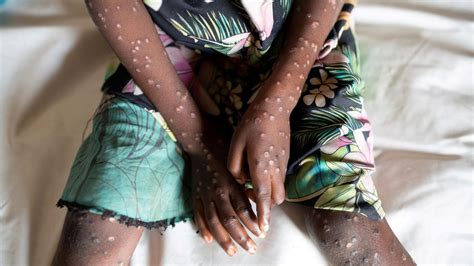The Ghana Health Service (GHS) has recently confirmed ten new cases of Mpox, a viral zoonotic disease formerly known as Monkeypox, raising the total number of cases in the country to nineteen. This recent surge emphasizes the ongoing need for public vigilance and proactive measures to curb the spread of the infection. While five of the newly diagnosed individuals are currently undergoing treatment in designated health facilities, the GHS has reported no fatalities associated with this recent outbreak. This information is vital for understanding the current situation and underscores the importance of public health interventions.
Mpox is characterized by its transmission primarily through close physical contact with infected individuals, animals carrying the virus, or materials contaminated with the virus. This close contact can involve skin-to-skin interaction, exposure to bodily fluids, or contact with contaminated surfaces. The symptoms of Mpox typically manifest as a combination of fever, distinctive skin rashes, swelling of the lymph nodes, muscle aches and back pain, headaches, and a general feeling of fatigue or malaise. These symptoms, while sometimes resembling those of other common illnesses, require careful attention and prompt medical consultation, especially when accompanied by a rash.
The GHS is actively responding to the evolving Mpox situation by reinforcing its surveillance mechanisms and initiating a nationwide public education campaign. This multifaceted approach is essential in mitigating the risks and potential impact of the disease. The enhanced surveillance efforts aim to swiftly identify and isolate new cases, thus minimizing the spread within communities. Concurrently, the public education campaigns are designed to raise awareness among the population about the signs, symptoms, and transmission routes of Mpox, empowering individuals to take protective measures and seek timely medical assistance if needed.
The cornerstone of the GHS’s preventive strategy rests upon promoting hygienic practices, particularly frequent and thorough handwashing with soap and water. Maintaining impeccable hand hygiene is paramount in interrupting the transmission cycle of the virus, preventing its spread from person to person. Along with handwashing, the GHS emphasizes the importance of avoiding direct contact with individuals exhibiting any symptoms of illness, especially those presenting with unexplained skin rashes. This precautionary measure is crucial to limit exposure to the virus and reduce the risk of transmission.
In addition to the public health measures being implemented, individual responsibility plays a significant role in containing the spread of Mpox. Individuals are strongly urged to immediately report any suspected cases to the nearest health facility. Early reporting allows for prompt diagnosis, treatment, and implementation of isolation measures, effectively breaking the chain of transmission. Timely reporting not only benefits the individual seeking care but also safeguards the wider community by limiting the potential for further spread.
The GHS continues to monitor the Mpox situation diligently and remains committed to implementing effective control measures. The ongoing public education campaigns, coupled with robust surveillance efforts and timely reporting by individuals, are vital components of a comprehensive strategy to combat the disease. As the situation evolves, the GHS remains steadfast in its commitment to protecting public health and maintaining a proactive stance against Mpox. Continued vigilance, adherence to preventive measures, and prompt reporting of suspected cases are crucial in effectively managing the current outbreak and safeguarding public health.


